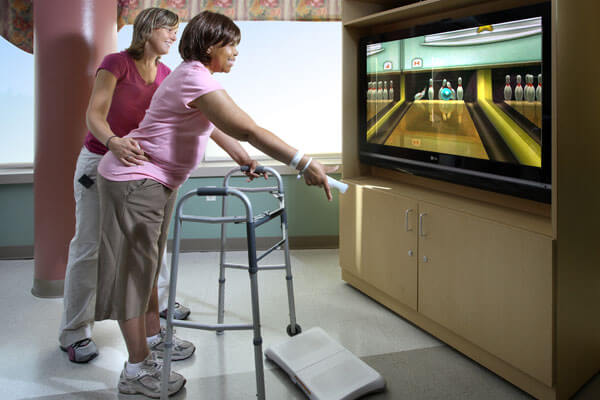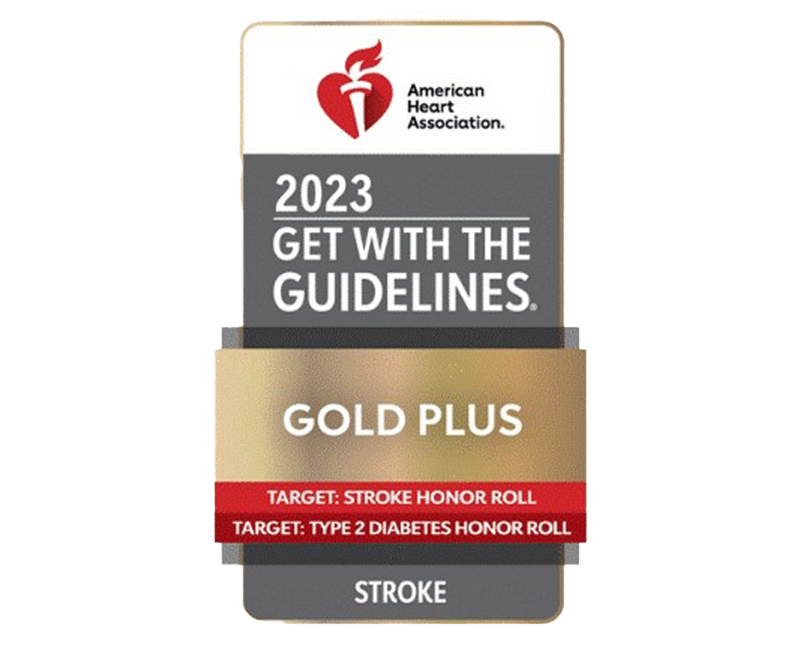Johns Hopkins Bayview Stroke Center

Johns Hopkins Bayview has been issued a full designation as a Comprehensive Stroke Center by the Maryland Institute for Emergency Medical Services Systems (MIEMSS), which recognizes that we offer the critical elements for long-term success and improving outcomes for stroke patients.
Our multidisciplinary team of doctors and specialists, led by stroke expert Elisabeth Marsh, M.D., are uniquely positioned to offer patients comprehensive treatment plans from the moment a patient arrives at the hospital. Emergency medicine physicians, vascular neurosurgeons, interventional neuroradiologists, neuroradiologists, neurointensivists rehabilitation specialists, and stroke team work together to enable unparalleled collaborative care and effectively evaluate and manage the unique and specialized needs of stroke patients. In addition, our stroke coordinator assures every patient receives the highest level of care. Our case manager provides a discharge transition of care plan unique for each individual.
Comprehensive Stroke Care
Each year, the Stroke Center admits an average of 220 patients with ischemic stroke, 79 with intracranial hemorrhage, and 38 with transient ischemic attack. Eighty-five percent of patients are admitted directly through the Emergency Department (ED). Last year, 44 patients (20 percent) presenting with acute ischemic stroke were treated with IV tissue plasminogen activator and 5 were taken for intra-arterial clot lysis.
For accurate and efficient assessment of patients presenting with acute ischemic stroke, the Brain Attack Team (a stroke neurologist, a neurology resident, dedicated stroke nurse) is on call 24 hours a day, seven days a week. A dedicated acute neurology resident is assigned to the ED. These interventions, in conjunction with the excellent working relationship with the ED, has more than doubled the percentage of patients treated within 60 minutes of arrival. As a result of these efforts, the Stroke Center has been a Gold Medal winning Stroke Center for the last eight years and most recently awarded the distinction of Target Stroke at the International Stroke Conference for its door-to-needle times.
Patients follow up for four to six weeks after discharge in the outpatient Stroke Intervention Clinic, where important post-stroke issues such as fatigue, depression and quality-of-life are addressed, along with a comprehensive plan for secondary stroke prevention. With the start of the Stroke Intervention Clinic, follow-up rates have significantly improved, while readmission rates have fallen. The goal is to promote improvement and provide support during all phases of recovery. Our mission is to provide the highest level of care to all stroke patients, resulting in better functional outcomes and quality of life.
-
Intracerebral Hemorrhage Center
Intracerebral hemorrhage is an especially dangerous type of stroke. A multidisciplinary team of experts join forces to provide urgent, life-saving care for this condition.
-
Stroke Intervention Clinic
The Stroke Intervention Clinic is an outpatient clinic for patients who recently have suffered a stroke. We help uncover why a stroke occurred and what patients can do to prevent another.

